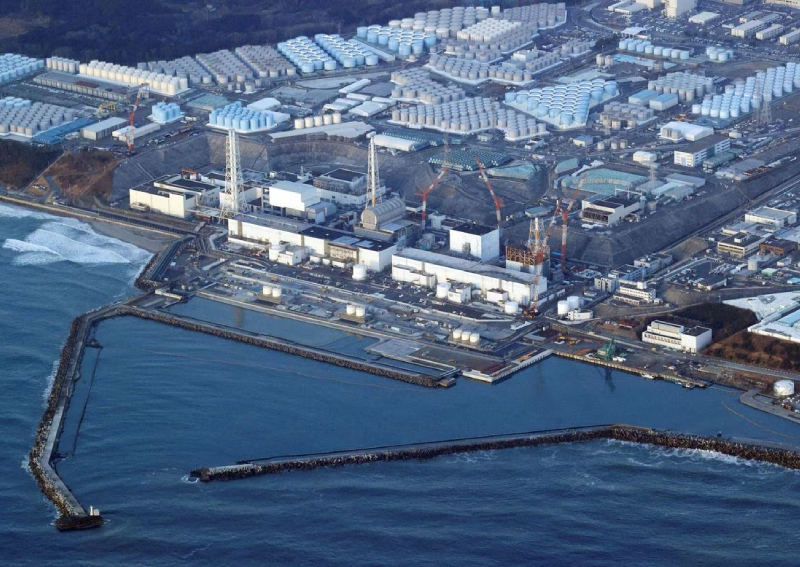Fukushima wastewater release would have limited impact on South Korean waters: Study


SEOUL – The release of waste water from Japan's wrecked Fukushima nuclear power plant would have a negligible effect on South Korean waters, according to a government study published on Thursday (Feb 16).
"That change would be too small to detect," an official at the Korea Institute of Ocean Science and Technology said.
The simulation study by the institute and the Korea Atomic Energy Research Institute showed the level of tritium, a radioactive isotope of hydrogen, would rise by 0.001 becquerel per cubic metre in 10 years, compared to the average of 172 becquerels per cubic metre of tritium currently found in Korean waters. A "becquerel" is a unit of radioactivity.
The analysis comes as South Korea's president, Yoon Suk-yeol, is seeking to improve relations with Japan after years of tensions.
Japan said last month that water from the destroyed Fukushima nuclear power plant could be released into sea "around this spring or summer".
The water release has raised concerns from neighbouring countries, including China and South Korea.
In 2021, South Korea's then-president Moon Jae-in ordered officials to explore petitioning an international court over Japan's decision to release contaminated water into the sea, amid protests by fisheries and environmental groups.
[[nid:613705]]
Japan has said regulators have deemed it safe to release waste water, which will be filtered to remove most isotopes although it will still contain traces of tritium, an isotope of hydrogen hard to separate from water.
The simulation study has "no connection" to normalising relations between South Korea and Japan, said Oh Haeng-nok, an official at South Korea's Ministry of Oceans and Fisheries.
Earlier this month, the Pacific island country of Micronesia, one of the fiercest critics of Japan's decision, said it was no longer concerned about the plan.
The Fukushima Daiichi nuclear station, about 220km northeast of Tokyo, was badly damaged by a magnitude 9.0 earthquake and tsunami in March 2011, sparking three reactor meltdowns.
More than one million tonnes of water used to cool reactors in the aftermath of the disaster, enough to fill about 500 Olympic-sized swimming pools, is being stored in huge tanks at the plant.